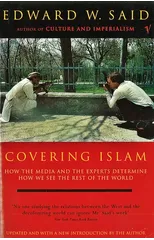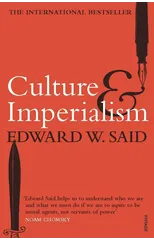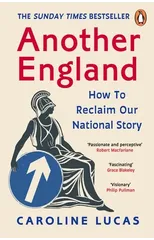For generations now, Edward W. Said's Orientalism has defined our understanding of colonialism and empire, and this Penguin Modern Classics edition contains a preface written by Said shortly before his death in 2003. In this highly-acclaimed work, Edward Said surveys the history and nature of Western attitudes towards the East, considering orientalism as a powerful European ideological creation - a way for writers, philosophers and colonial administrators to deal with the 'otherness' of eastern culture, customs and beliefs. He traces this view through the writings of Homer, Nerval and Flaubert, Disraeli and Kipling, whose imaginative depictions have greatly contributed to the West's romantic and exotic picture of the Orient. Drawing on his own experiences as an Arab Palestinian living in the West, Said examines how these ideas can be a reflection of European imperialism and racism. Edward W. Said (1935-2003) was a Palestinian-American cultural critic and author, born in Jerusalem and educated in Egypt and the United States. His other books include The Question of Palestine, Culture and Imperialism and Out of Place: A Memoir. If you enjoyed Orientalism, you might like Frantz Fanon's The Wretched of the Earth, also available in Penguin Modern Classics. 'Stimulating, elegant and pugnacious'Observer 'Beautifully patterned and passionately argued'New Statesman 'Very exciting ... his case is not merely persuasive, but conclusive' John Leonard, New York Times 'Magisterial'Terry Eagleton
Edward W. Said
Edward W. Said (1935-2003) was a Palestinian-American literary theorist, critic, and scholar known for his groundbreaking work in post-colonial theory and cultural studies. His most notable works include "Orientalism" (1978), in which he critiques Western representations of the Middle East, and "Culture and Imperialism" (1993), which explores the relationship between culture and power in colonial contexts.
Said's writing style is characterized by its eloquence, depth of analysis, and commitment to challenging dominant narratives and structures of power. He was a pioneering figure in the field of post-colonial studies, and his work has had a profound impact on literary theory, cultural studies, and the understanding of colonialism and imperialism.
His most famous work, "Orientalism," remains a seminal text in the field, and continues to be widely studied and debated in academic circles. Said's contributions to literature and cultural studies have left a lasting legacy, inspiring generations of scholars to critically engage with issues of representation, identity, and power in the post-colonial world.








